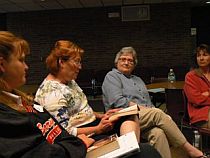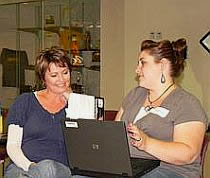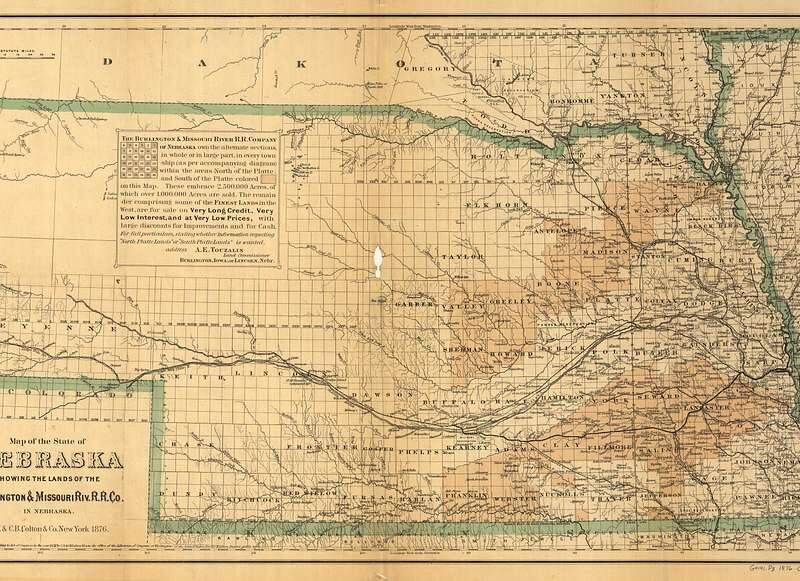On June 7, 2010, thirteen teachers from western Nebraska descended upon the campus of Mid-Plains Community College in North Platte, Nebraska for a Rural Writing Institute. Much of the funding for this institute was provided through a grant from the Nebraska Coordinating Commission for Postsecondary Education and the Mid-Nebraska Community Foundation. Participants from Gordon, Hyannis, Hershey, Rushville, Sargent, Curtis, and O’Neill joined North Platte teachers for two weeks of reading, writing, and learning about some of the history of the North Platte area. We met online during the first week of June when participants read posted articles to learn some of the background of Place-Conscious Education. Blackboard was used for responses to the readings and to introduce ourselves and our places to one another.

Co-facilitators Amy Wilson, Aurora Elementary School fifth grade teacher, Sharon Bishop, secondary English teacher at Heartland Community Schools, and Anne Schmit, instructor Mid-Plains Community College, planned a busy institute in North Platte for these teachers. Over the course of the two weeks on campus, we visited Scout’s Rest Ranch, the home of Buffalo Bill; the Golden Spike Tower at the Railroad Yards in North Platte; a very full Platte River and the adjacent Cody Park in North Platte; the Lincoln County Historical Museum with its special Canteen exhibit; and Fort McPherson National Cemetery, the military cemetery at Maxwell. Visiting these places provided opportunities for participants to experience important components of Place-Conscious work while learning some local history by getting out of the classroom and visiting a variety of sites.
Teachers experienced many examples of work that can be adapted to their own classrooms. We created maps of our place, wrote poetry and short stories of our place, and shared these pieces of ourselves within our small groups. Dorothy Miller, English teacher from Fillmore Central High School, presented an EQUIP highlighting strategies that she uses with students within her creative writing classes. Two local authors also visited us during the institute to share their writing lives with us. Each teacher constructed a unit of Place-Based work to be taught during the school year and planned a presentation to her school and/or community to reflect the work of the institute.

Rural Writing Institutes follow the standard procedures and philosophy of all NWP institutes but they add to these components the philosophy and utilization of Place-Conscious work that is directly experienced in a rural place. Many of the teachers in this institute teach in very small schools and feel a kind of isolation from other colleagues. For so many, this time together gave them a network of other rural teachers and they have planned ways to stay in touch after the institute. This year marked the first time that the first week of the Institute was online and most agreed that this was a successful way to bridge the distance gap that is part of teaching in rural Nebraska.


